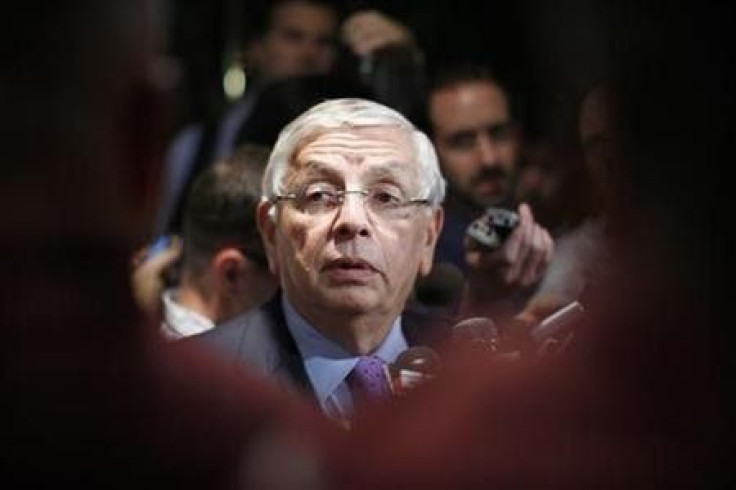NBA Lockout 2011: When Will the Season Start?
ANALYSIS

The NBA owners and players continue to bicker over the league's revenue split, which now puts the rest of the season in serious doubt.
NBA commissioner David Stern has already canceled the league's games through November and it might not be long before the NBA moves to start canceling games in December. The reason mainly stems from the NBAPA demanding a 52-48 revenue split in its favor, while NBA owners refuse to go past a 50-50 split.
Recent reports indicated that the NBAPA might be splintering with Derek Fisher and Billy Hunter of differing opinions on what type of deal the players should accept, which only strengthens Stern's position.
Yahoo Sports reported that Fisher might have secretly met with Stern and a few NBA owners to privately negotiate a deal to end the lockout. The common thought is that owners won't improve upon the current 50-50 offer, but could offer a worse deal if more and more games have to be canceled.
With all the current turmoil it puts further doubt that the NBA will have a season, but common sense suggests that the two sides will eventually come to an agreement. Why? Past NBA lockout history plus all of the lost revenue from a lost season indicates a deal will eventually happen.
First thing to look at it is the 1998-99 NBA Lockout that resulted in a shortened 50 game season. Stern threatened to cancel the entire season if a deal wasn't reached by Jan. 7 and guess what happened? Both sides managed to agree to a deal a day before the deadline.
Stern continues to impose different deadlines on when he will cancel games, but don't be surprised to see him hold the full-season cancellation date close to that previously used Jan. 7 deadline. That gives owners and players plenty of time to come to a decision before the league axes the entire season.
Additionally the economics suggest that losing a month or two of games isn't a huge deal to NBA owners, but losing an entire season is a big deal.
For now, it's worth the damage to goodwill that will come from missing a month or two from the games you might get, Tulane law professor and sports law director Gabe Feldman told Sports Illustrated. The damage from missing a couple of months is probably quickly reparable, relatively speaking. You've got to balance the short-term damage from missing a few weeks of the season vs. the long-term benefits that you get from a 10-year collective bargaining agreement.
But while the owners could be content with losing November and December, Feldman notes there is a big difference between those two months and a full season.
There's a significant difference between canceling a month or two of the season and canceling the entire season, and I think both sides recognize that, he said.
One of the biggest factors, though, is how doubtful it is that players will be content with losing an entire season. Players have held strong saying that they are in it for the long run, but it's hard to believe that the majority of the players would be okay with losing an entire season's salary.
Some of the league's biggest stars might be financially stable with all of the millions they've accumulated over the years, but some of the lesser-known players might not be able to survive a year or two without bringing in a salary.
Similar to in 1998, one has to imagine that when push comes to shove that these two sides will find a way to reach a deal. Agents and Hunter might be against reaching a deal that doesn't mean a 52 percent split or better, but eventually the players will realize that a 50-50 split isn't the worse deal in the world.
Is it ideal? Not exactly.
But players also need to realize that the leverage is firmly in the side of the owners. Very few owners want to lose the season, but they are much more capable of surviving it comfortably than the players.
Even NFL players -- who had significantly more leverage than NBA players currently have -- took a less than ideal deal this past summer. Sometimes you just have to realize that the offer is never going to get better and it's not worth it to keep waiting out.
The NBAPA executive committee is meeting on Thursday to discuss plans for the next mean, but has not scheduled any additional negotiation meetings with the owners. It wouldn't be a surprise at all to see the committee reconsider its stance on whether it'd accept anything worse than a 52-48 offer.
There's no escaping the fact that the NBA could cancel the entire season, but right now the best guess is that you'll see NBA players suiting up in early January.
Contact John Talty at j.talty@ibtimes.com and follow him on Twitter at @jtalty.
© Copyright IBTimes 2024. All rights reserved.











